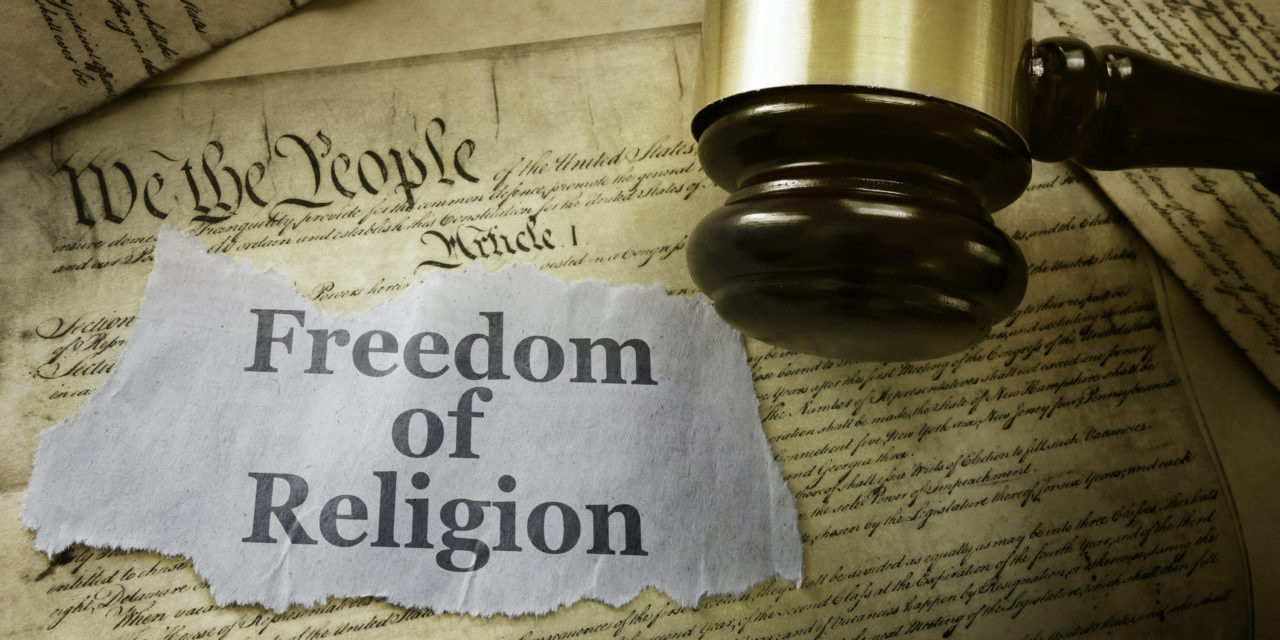In an important religious freedom case, the 5th U.S. Circuit Court of Appeals in New Orleans has reversed a lower court and ruled that religious employees of United Airlines might be entitled to an injunction blocking the company’s vaccine mandate.
The appeals court ruled that the airline’s August 2021 ultimatum – that employees either submit to COVID-19 vaccinations or be suspended indefinitely without pay – amounted to “coercion” of two religious employees who objected to the vaccines’ connection with the use of fetal cells obtained through abortions. Such coercion, the judges ruled in a 2-1 decision, results in “irreparable harm” that meets one of the legal conditions for obtaining a preliminary injunction.
That may sound like a lot of legalese, but it’s actually a big deal. The 5th Circuit’s decision could favorably change the way courts view the religious freedom claims of employees in the private sector.
Here’s why the 5th Circuit’s decision is important.
When the government is guilty of violating your religious freedom, courts are free to issue injunctions stopping that from happening. That’s because the First Amendment is in play in government-involved cases, and courts will protect you against even minor losses of constitutionally guaranteed freedoms.
In the private employment realm, however, the First Amendment typically has no application. But a federal statute does – Title VII – when an employer discriminates against an employee because of their religion. But ordinarily, even under Title VII you would only be entitled to monetary damages and perhaps reinstatement, but not an injunction.
Even monetary damages, however, can’t make up entirely for the distress caused by losing a job, perhaps defaulting on home and car loans, and other problems incurred while waiting for a court to decide how much money you’re entitled to and whether you can get your old job back.
That’s why employees faced with only bad choices from their employer can easily be pressured – “coerced,” to use the court’s term – to compromise their religious beliefs in order to keep their jobs, and that’s what makes this lawsuit so important.
In the case of United Airlines, the objecting employees are not just forfeiting paychecks and benefits for what the company predicted might be for another “72 months or so,” but are continually being pressured to get vaccinated against their deeply held beliefs.
Here’s what the 5th Circuit noted as evidence of the coercion:
“But at a town-hall meeting, United’s CEO warned that not many exemptions would be granted and remarked that any employee who all the sudden decid[ed], ‘I’m really religious’ would be ‘putting [her] job on the line’ by requesting an accommodation. Once an employee requested a religious exemption, United would ask the employees about their past vaccinations, the use of stem cells in those vaccines, and ‘why receiving such vaccines or medications were not a violation of’ the employees’ ‘sincerely held [religious] belief’ on those prior occasions. United also asked why the employees’ religious beliefs prevented them from receiving the COVID-19 vaccine ‘but not taking other types of medicine.’ Some employees were asked to provide a letter from a pastor or other third party attesting that the employee actually held religious beliefs.”
As a proposed “accommodation” for its employees’ religious beliefs – which Title VII requires in many instances – United offered only an indefinite suspension without pay or benefits for a period which it ominously predicted could last 72 months.
That could be the worst offer of “accommodation” in the history of accommodations. And it was all part of the coercive pattern of treatment United exhibited toward its employees, according to the 5th Circuit.
It’s important to note the 5th Circuit did not take it upon itself to grant the injunction but sent the case back down to the district court with instructions to take a look at all the rest of the legal factors involved in granting one. It did, however, reverse the district court’s determination that there was no “irreparable harm” to these religious employees.
That very limited, but very important 2-1 ruling from the three-judge 5th Circuit panel drew the ire of the lone dissenter, Judge Jerry Smith, who wrote a fiery, 58-page dissent. Smith was appointed to the 5th Circuit by President Ronald Reagan 1987.
Calling the majority opinion an “orgy of jurisprudential violence,” Judge Smith promised that if he ever ruled the way his two colleagues on the panel had ruled, he would, he said, quoting a memorable phrase used by the late Supreme Court Justice Antonin Scalia: “hide my head in a bag.”
Notwithstanding Judge Smith’s colorful language, the case is far from over and the ultimate fate of the religious claims of the United Airlines employees involved remain to be decided, and perhaps appealed again, sometime in the near future.
However, as other private employers consider taking actions similar to United’s, they might want to take a step back and consider whether, in light of the 5th Circuit’s ruling, it’s really worth it to take heavy handed actions that trample the religious conscience of their employees.
This will be an important case to follow as it proceeds through the courts. We’ll keep you apprised.
Photo from Shutterstock.






